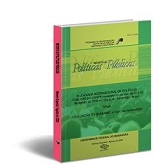INDIGENISTIC POLICIES, DEVELOPMENT AND INDIGENOUS TERRITORIALITIES IN CURRENT BRAZIL
DOI:
https://doi.org/10.18764/2178-2865.v24nEp577-597Keywords:
Indigenist policies, Indigenist Education and Health, Territoriality and Development, Tutorship and Ethnic AutonomyAbstract
The relations between native peoples and Brazilian society are historically mediated by the State. In the Republic, due to the conflicts promoted by expansionist fronts, the Indian Protection Service was created (1910), implementing the tutelary regime. During the Military Regime, the SPI was extinguished and replaced by FUNAI, which followed the same integrationist principles, linked to development policy in the Amazon. The 1988 Constitution abolished these precepts and recognized the autonomous organization of these peoples. In recent decades, the Brazilian State, in line with agribusiness, mining and other interests, has restricted the ethnic and territorial autonomy of indigenous peoples. The article analyzes the impacts of these policies on the social organization and cosmopolitics of these peoples, in the fields of education, development, territorialityand interethnic relations.
Downloads
Downloads
Published
How to Cite
Issue
Section
License
Copyright (c) 2020 Revista de Políticas Públicas

This work is licensed under a Creative Commons Attribution-NonCommercial-NoDerivatives 4.0 International License.
UNIVERSIDADE FEDERAL DO MARANHÃO
PROGRAMA DE PÓS-GRADUAÇÃO EM POLÍTICAS PÚBLICAS
REVISTA DE POLÍTICAS PÚBLICAS
Termo de Transferência de Direitos Autorais
Como condição para a submissão, os autores devem declarar a autoria do trabalho e concordar com o Termo de Cessão de Direitos Autorais, marcando a caixa de seleção após a leitura das cláusulas)
- Declaro que participei da elaboração do trabalho referido, em parte ou no todo; que não omiti qualquer ligação ou acordo de financiamento entre os autores e instituições ou empresas que possam ter interesses na publicação desse trabalho;
- Declaro tratar-se de texto original, isento de compilação, em parte ou na íntegra, de minha autoria ou de outro (os) autor (es);
- Declaro que o texto não foi enviado a outra revista (impressa ou eletrônica) e não o será enquanto a possibilidade de sua publicação esteja sendo considerada pela RPP;
- Declaro que transfiro os direitos autorais do trabalho especificado para a RPP, comprometendo-me a não reproduzir o texto, total ou parcialmente, em qualquer meio de divulgação, impresso ou eletrônico, sem prévia autorização dessa Revista.
- Declaro que tenho conhecimento que a cessão do texto à RPP é gratuita e, portanto, não haverá qualquer tipo de remuneração pela sua utilização.

Este obra está licenciado com uma Licença Creative Commons Atribuição-NãoComercial-SemDerivações 4.0 Internacional.







